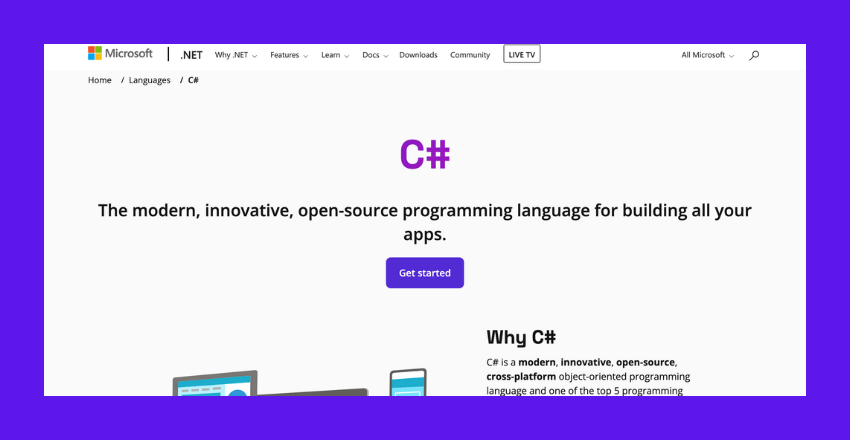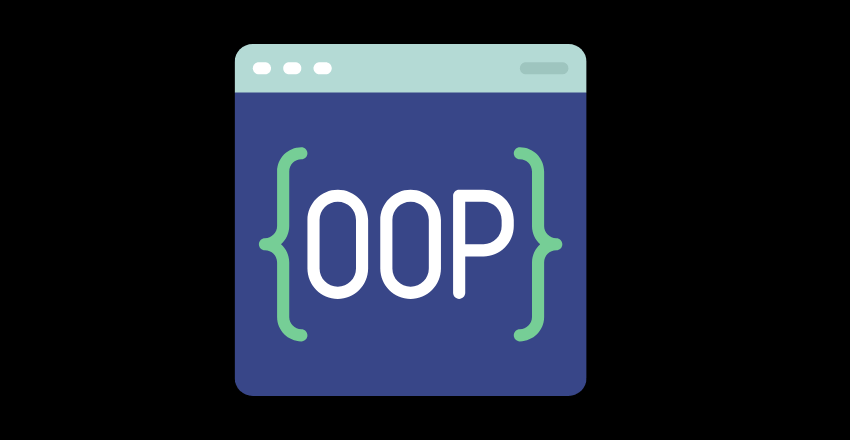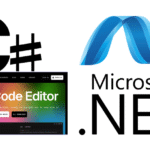
Demystifying C#’s Popularity: Its robust framework support, especially .NET, empowers developers to craft cross-platform solutions, enhancing versatility and broadening its user base.
C# is an immensely popular programming language among developers, widely used in both web and desktop application development. Its popularity stems from several factors, including its ease of use, robust object-oriented programming capabilities, and strong community support.
In this article, we will explore what makes C# such a popular choice for professional programmers.
We will dive into its key features and examine why it has become one of the most commonly used programming languages.
Key Takeaways:
- C# is a popular programming language among developers.
- It is widely used in both web and desktop application development.
- C# offers ease of use, robust object-oriented programming capabilities, and strong community support.
- In this article, we will explore what makes C# so popular among professional programmers.
Easy to Learn and Use
One of the primary reasons for the widespread popularity of C# is its ease of use and learnability. C# boasts a simple and intuitive syntax, making it easy for developers of all skill levels to write code quickly and efficiently.
C# is a C-style language, which means that it follows a similar syntax to other popular programming languages like C++ and Java. Its syntax is concise and straightforward, making it easy to read and write. Additionally, C# supports modern programming paradigms like functional programming, asynchronous programming, and parallel programming, allowing developers to write cleaner and more scalable code.
Another factor that contributes to the ease of use of C# is its strong type system. C# is a statically-typed language, which means that all variables must be declared with a specific data type. This prevents type errors and makes it easier to catch bugs early in the development process.
Overall, the simplicity and elegance of C# make it an attractive choice for developers who are looking for a language that is easy to pick up and use right away. Whether you are a beginner or an experienced developer, C# provides a seamless and intuitive experience that allows you to focus on writing great code.
Extensive Framework Support
C# has robust framework support, with a particular focus on the .NET framework. The .NET framework is a comprehensive and integrated programming infrastructure that includes libraries, APIs, and other resources that facilitate C# development. Some of the popular .NET framework components include:
| Component | Description |
|---|---|
| Xamarin | A mobile application development framework that enables C# developers to create native iOS, Android, and Windows applications using a shared codebase. |
| Unity | A game engine that allows C# developers to create 2D and 3D games for a wide range of platforms, including mobile, desktop, and gaming consoles. |
| ASP.NET | A web application framework that provides a wide range of tools and libraries to build dynamic, data-driven websites, web services, and applications. |
| WPF | A graphical subsystem for rendering user interfaces in Windows-based applications, which provides support for multimedia, animation, and data binding. |
The extensive framework support for C# simplifies and accelerates the development process, by providing ready-to-use components and infrastructure. Developers can leverage these frameworks to build powerful and complex applications with minimal effort, reducing the time and costs associated with development.
Moreover, the popularity and widespread adoption of .NET framework components ensure that developers have access to a large pool of resources, making it easier to find solutions to common problems and challenges.
Robust Object-Oriented Programming

C# is a powerful programming language that supports robust object-oriented programming (OOP) concepts, including encapsulation, inheritance, polymorphism, and abstraction. OOP is a programming paradigm that focuses on creating modular code, where data and functions are organized into reusable components called objects.
The class hierarchy in C# allows developers to create well-structured code that is easy to maintain and extend.
Encapsulation is a key feature of OOP, which allows data to be hidden from other parts of the program, protecting it from accidental modification. Inheritance enables objects to inherit properties and behaviors from other objects, enabling code reuse and reducing redundancy.
Polymorphism allows objects to take on multiple forms, depending on the context, enhancing flexibility and scalability. Abstraction allows developers to focus on the essential features of an object, ignoring the unnecessary details.
The OOP features of C# enable developers to write cleaner, more efficient, and more maintainable code. With OOP, code can be organized into logical and reusable modules, reducing development time and enhancing code quality.
Seamless Integration with Existing Windows Applications
C# is widely known for its ability to integrate seamlessly with existing Windows applications. This has made it a popular choice for developers who want to build robust and feature-rich Windows desktop applications.
One of the key advantages of using C# for Windows development is the ability to leverage the powerful Windows API bindings through COM Interop. This allows developers to access and use existing Windows functionality and libraries within their C# applications.
| Benefits of C# for Windows development: |
|---|
| C# allows developers to easily create and manage Windows Forms applications, offering a wide range of graphical user interface (GUI) elements such as forms, buttons, text boxes, and more. |
| Through WPF (Windows Presentation Foundation), developers can create modern and visually stunning graphical interfaces, while taking advantage of hardware acceleration for better performance. |
| C# and .NET framework also support ASP.NET, a web development framework that allows developers to build web applications, web APIs, and even web services using C#. |
Thanks to its rich development capabilities, C# has become the preferred choice for developers looking to build Windows desktop applications with exceptional performance, ease of use, and rich features.
Strong Community Support
C# enjoys a large and active community, which contributes greatly to its popularity. Developers have access to a wealth of online resources, including forums, tutorials, and open-source projects.
The community provides an excellent platform for collaboration and knowledge-sharing, ensuring that developers of all skill levels can learn from each other. Additionally, the community helps to identify and fix bugs, enhancing the overall quality of C# code.
One of the most significant benefits of the C# community is the vast number of open-source projects available. These projects provide developers with access to reusable code, saving significant time and effort when building new applications.
Moreover, the community ensures that C# remains up-to-date with industry trends and evolving technologies. This includes the development of new libraries, frameworks, and tools that enhance C#’s capabilities and make development more efficient.
Cross-Platform Development Capabilities

C# offers exceptional cross-platform development capabilities. With the introduction of .NET Core, C# developers can now build applications that can run smoothly on different platforms like Windows, Mac, and Linux. Xamarin, a mobile app development platform, allows C# developers to build native iOS, Android, and Windows apps using a single shared codebase.
Unity, a popular game engine, also supports C# scripting, allowing developers to write code once and deploy it across multiple platforms, including desktop, mobile, and consoles. Mono, an open-source development platform, is also an excellent option for developing cross-platform applications with C#.
Advantages of Cross-Platform Development with C#
Developing applications with C# for multiple platforms has several advantages. Firstly, it enhances portability, making it easier to deploy the same application on different platforms. Secondly, C# offers a highly efficient development process, with the ability to write code once and deploy it across multiple platforms while ensuring optimal performance and functionality.
Thirdly, cross-platform development with C# provides cost savings, as developers do not need to write separate code for each platform, reducing development time and costs. Fourthly, it enables better accessibility and user reach as applications can be deployed on multiple platforms, making them available to a wider audience.
High Performance and Efficiency
C# is known for its high performance and efficiency, making it a preferred choice for developers working on performance-critical projects. C# uses a Just-In-Time (JIT) compiler that compiles code at runtime, enabling optimized execution and fast performance. Additionally, managed code and garbage collection ensure that memory is allocated and released efficiently, without requiring manual intervention from developers.
In C#, developers can write code that executes in parallel using Task Parallel Library (TPL) and Parallel LINQ (PLINQ), making it easier to scale applications on multi-core machines. Furthermore, asynchronous programming using the async and await keywords allows developers to write efficient code that does not block the application’s thread, resulting in higher throughput and responsiveness.
C# also offers support for SIMD (Single Instruction Multiple Data) programming, which allows developers to perform parallel operations on multiple data elements simultaneously. SIMD programming can significantly improve performance when working with large data sets, making it an essential feature for scientific computing and data-intensive applications.
Overall, C#’s performance and efficiency make it a popular choice for developers working on applications that demand high-speed processing and optimized execution, such as gaming applications, high-frequency trading systems, and large-scale data processing applications.
Support for Modern Development Paradigms
C# offers extensive support for modern development paradigms, making it a versatile and powerful programming language. Whether you are building an application from scratch or working on an existing project, C# provides a range of tools and features that streamline the development process and enhance productivity.
Functional Programming
One of the most significant paradigms that C# supports is functional programming. Functional programming is a programming style that emphasizes the use of functions to perform computations. The benefits of functional programming include better code organization, improved performance, and enhanced code reusability.
C# offers a range of features that facilitate functional programming, including lambda expressions, which allow you to define anonymous functions, and closures, which enable functions to capture and access variables from the surrounding context.
Asynchronous Programming
C# also offers extensive support for asynchronous programming. Asynchronous programming is a programming style that allows for concurrent execution of code, improving performance and responsiveness. C# offers several features that simplify asynchronous programming, including the async and await keywords, which allow you to write asynchronous code that is easy to read and maintain.
LINQ
Language Integrated Query (LINQ) is a powerful feature of C# that allows you to query data from a variety of sources using a consistent syntax. With LINQ, you can query data from databases, collections, and XML documents using a simple and intuitive syntax. This makes it easier to write code that is both efficient and easy to read.
Parallel Programming
C# also supports parallel programming, which allows for the execution of multiple threads of code simultaneously. Parallel programming can significantly improve performance for certain types of applications, such as those that perform computationally intensive operations. C# offers several features that simplify parallel programming, including the Parallel class, which allows you to execute code concurrently using multiple threads.
Overall, C# provides extensive support for modern development paradigms, making it a powerful and flexible programming language that is well-suited to a range of applications.
Enhanced Security Features
One of the reasons behind C#’s popularity among developers is its enhanced security features. C# prioritizes security by providing a range of features to safeguard against common vulnerabilities.
The language provides type safety features that ensure data types are used in a consistent manner, reducing the risk of data corruption or manipulation. The exception handling mechanisms help prevent application crashes and improve user experience. Additionally, C# offers robust memory management features, reducing the risk of memory-related vulnerabilities.
C# also includes built-in cryptography libraries to secure sensitive data and communications, such as encryption and hashing algorithms. By prioritizing security, C# enables developers to create secure applications and protect user data.
Career Opportunities for C# Developers
The popularity of C# has led to a strong demand for skilled C# developers in the job market. Whether you’re a seasoned professional or just starting your career, there are abundant opportunities for a C# developer to progress and grow.
The software development industry is one of the fastest-growing sectors in the job market, and expertise in C# can open doors to a range of opportunities across various industries. In fact, a quick search on popular job portals reveals hundreds of job vacancies for C# developers, with positions ranging from entry-level to senior management roles.
| Job Title | Average Annual Salary | Industry |
|---|---|---|
| C# Developer | $89,000 | Software Development |
| Senior C# Developer | $113,000 | Finance & Banking |
| .NET Developer | $92,000 | Healthcare |
The above table showcases the average annual salary for C# developers in different industries in the United States. As can be seen from the table, C# developers can command competitive salaries, especially as they gain experience and progress through their careers.
Moreover, C# is a versatile language that can be used in a wide range of industries. From healthcare to finance, C# developers can find opportunities in nearly every corner of the job market.
Overall, if you have a solid grasp of C# and an interest in software development, the job market presents numerous opportunities for a fulfilling and enriching career.
Conclusion

C# has proven to be an increasingly popular programming language for developers in recent years. Its versatility, simplicity, and robust features have made it a preferred choice for building modern applications.
The extensive framework support for C# has further enhanced its capabilities, with the .NET framework and its components offering developers a wide range of tools for application development. C#’s seamless integration with existing Windows applications has also made it a popular choice for developers looking to build Windows-based software.
Furthermore, the strong community support surrounding C# has contributed to its popularity, with developers being able to access a wealth of online resources for learning and troubleshooting the language.
C#’s cross-platform development capabilities, high performance and efficiency, support for modern development paradigms, and enhanced security features have all contributed to making it a relevant and widely adopted programming language, with lucrative career opportunities for developers.
As the software development landscape continues to evolve, C# is poised to remain a relevant and valuable programming language, with advancements in technology and development paradigms driving its continued success.
FAQs

1. Why is C# so popular among developers?
C# (pronounced as C-sharp) is a modern, object-oriented programming language developed by Microsoft. Its popularity stems from its versatility, being the primary language for .NET framework applications. Additionally, its syntax is similar to other C-derived languages like C++ and Java, making it easier for developers to transition.
2. How does C#’s integration with Windows affect its popularity?
Being a Microsoft product, C# offers seamless integration with Windows operating systems. This deep integration allows developers to create Windows applications with ease, boosting productivity. The ability to develop for the Windows platform directly gives C# an edge in the market.
3. Are there any notable applications or platforms built using C#?
Absolutely! C# is the backbone for many popular applications and games. The Unity game engine, for instance, uses C# as its primary scripting language. This means many of your favorite video games are likely powered by C#. Additionally, enterprise applications, especially those in the Microsoft ecosystem, often leverage C# for development.
4. How does C# compare to PHP in web development?
While both C# and PHP are powerful in their own right, they serve different purposes in the web development realm. PHP is a server-side scripting language primarily used for web development. C#, on the other hand, is used with ASP.NET for building dynamic web applications. The choice between the two often boils down to the specific needs of the project and the development environment.
5. With the rise of cross-platform development, how does C# stand out?
C# has made significant strides in cross-platform development with the introduction of .NET Core. This allows developers to build applications that run on Windows, Linux, and macOS using a single codebase. The active support and continuous updates from Microsoft ensure that C# remains a top choice for developers aiming for cross-platform compatibility.

Jessica is a highly accomplished technical author specializing in scientific computer science. With an illustrious career as a developer and program manager at Accenture and Boston Consulting Group, she has made significant contributions to the successful execution of complex projects.
Jessica’s academic journey led her to CalTech University, where she pursued a degree in Computer Science. At CalTech, she acquired a solid foundation in computer systems, algorithms, and software engineering principles. This rigorous education has equipped her with the analytical prowess to tackle complex challenges and the creative mindset to drive innovation.
As a technical author, Jessica remains committed to staying at the forefront of technological advancements and contributing to the scientific computer science community. Her expertise in .NET C# development, coupled with her experience as a developer and program manager, positions her as a trusted resource for those seeking guidance and best practices. With each publication, Jessica strives to empower readers, spark innovation, and drive the progress of scientific computer science.







